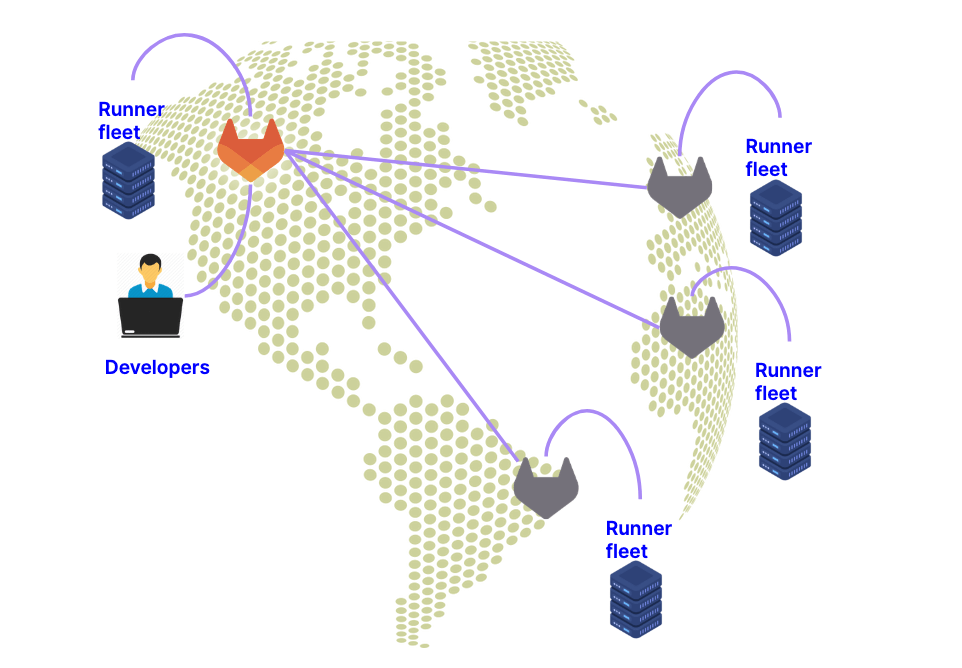16.10
GitLab 16.10 released with semantic versioning in the CI/CD catalog
Today, we are excited to announce the release of GitLab 16.10 with semantic versioning coming to the CI/CD catalog, wiki templates, the possibility to offload CI traffic to geo secondaries, new ClickHouse integration for high-performance DevOps analytics, and much more!
These are just a few highlights from the 90+ improvements in this release. Read on to check out all of the great updates below.
To the wider GitLab community, thank you for the 170+ contributions you provided to GitLab 16.10! At GitLab, everyone can contribute and we couldn't have done it without you!
To preview what's coming in next month’s release, check out our Upcoming Releases page, which includes our 16.11 release kickoff video.
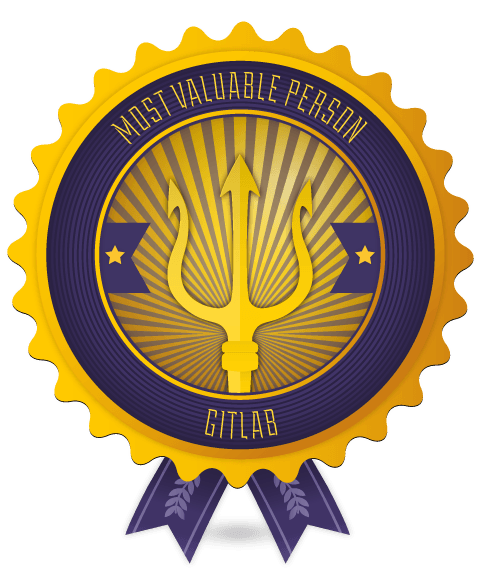
Lennard Sprong previously won the GitLab MVP award in 15.4 and was also nominated in 16.9. He continues to provide contributions to GitLab Workflow for VS Code, merging 8 contributions in the past two months. Some of his past contributions include the ability to watch the trace of running CI jobs, view downstream pipelines, and compare images in merge requests. Lennard is also actively involved in issues inside the gitlab-vscode-extension project.
Erran Carey, Staff Fullstack Engineer at GitLab, nominated Lennard and noted that “Lennard resolved an issue viewing pipelines affecting GitLab Community Edition users. He pointed impacted users to the existing workaround before creating a merge request to address the issue.”
Tomas Vik, Staff Fullstack Engineer at GitLab, additionally supported Lennard and highlighted a contribution to add support for image diff that allows people to view image changes during merge request review.
Marco Zille also wins his second GitLab MVP award, previously winning in 15.3. Marco was recognized not only for code contributions this release, but also for ongoing efforts supporting GitLab’s wider community of contributors, running community pairing sessions, collaborating with GitLab team members, and reviewing merge requests.
Marco added the ability to cancel a pipeline immediately after one job fails. The feature is enabled and available on GitLab.com but still behind a feature flag for self-hosted instances. It will be made available for everyone in 16.11.
Allison Browne, Senior Backend Engineer at GitLab, nominated Marco for picking up this long standing and highly requested feature request in pipeline execution. Fabio Pitino, Principal Engineer at GitLab, added that “Marco not only implemented the fix but also was instrumental to the design of the feature, bringing use cases and discussing them with customers interested in the feature.”
Peter Leitzen additionally supported Marco’s nomination by highlighting how Marco helped to review and then finish a fix for loading the stack trace from Sentry.
We are so grateful for the continued support from Lennard and Marco to improve GitLab and support our open source community! 🙌
To enforce consistent behavior across published components, in GitLab 16.10 we will enforce Semantic versioning for components that are published to the CI/CD catalog. When publishing a component, the tag must follow the 3-digit semantic versioning standard (for example 1.0.0).
When using a component with the include: component syntax, you should use the published semantic version. Using ~latest continues to be supported, but it will always return the latest published version, so you must use it with caution as it could include breaking changes. Shorthand syntax is not supported, but it will be in an upcoming milestone.
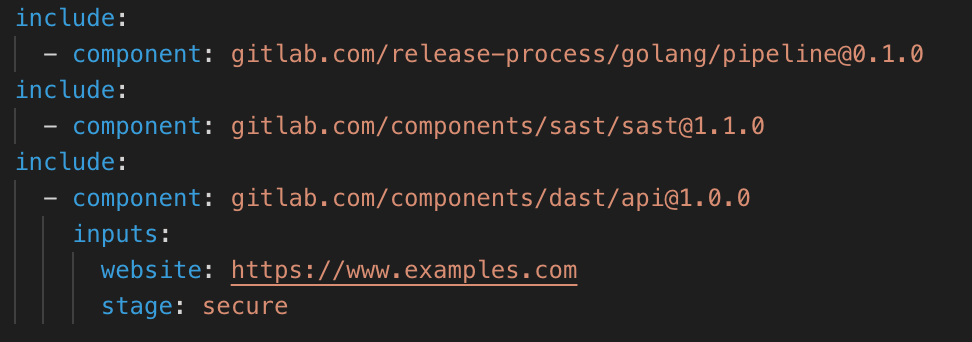
Generative AI is revolutionizing work processes, and you can now facilitate the adoption of these technologies without compromising privacy, compliance, or intellectual property (IP) protections.
You can now disable GitLab Duo AI features for a project, a group, or an instance by using the API. You can then enable GitLab Duo for specific projects or groups when you’re ready. These changes are part of a suite of expected work to make AI features more granular to control.
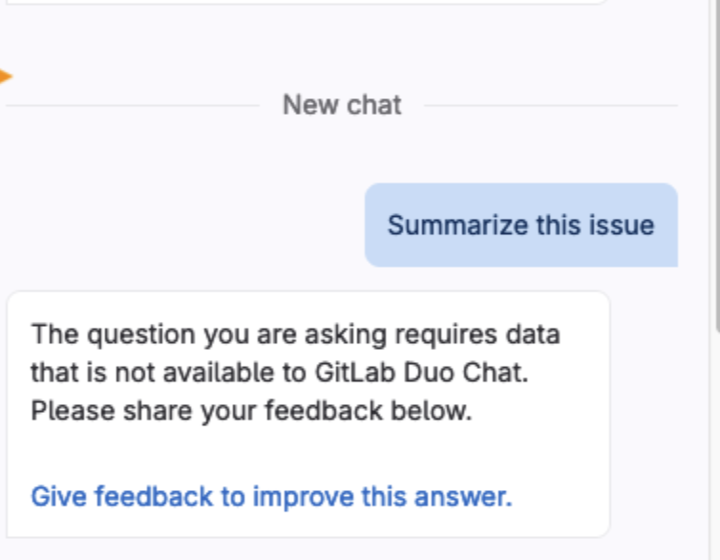
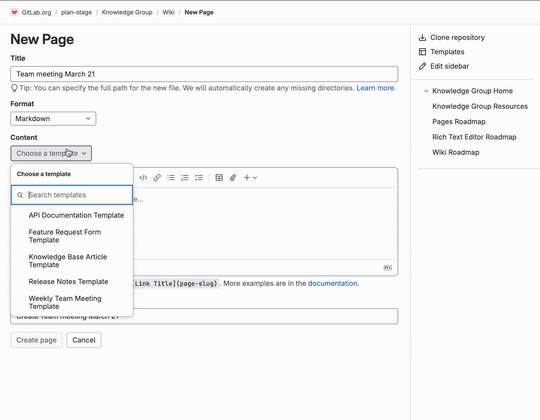
This version of GitLab introduces all-new templates to the Wiki. Now, you can create templates to streamline creating new pages or modifying existing ones. Templates are wiki pages that are stored in the templates directory in the wiki repository.
With this enhancement, you can make your wiki page layouts more consistent, create or restructure pages faster, and ensure that information is presented clearly and coherently in your knowledge base.
The Contribution Analytics report is now more performant and backed by an advanced analytics database using ClickHouse on GitLab.com. This upgrade set the foundation for new extensive analytics and reporting features, allowing us to deliver high-performance analytics aggregations, filtering, and slicing across multiple dimensions. Support for self-managed customers to be able to add to this capability is proposed in issue 441626.
Although ClickHouse enhances GitLab’s analytics capabilities, it’s not meant to replace PostgreSQL or Redis, and the existing capabilities remain unchanged.
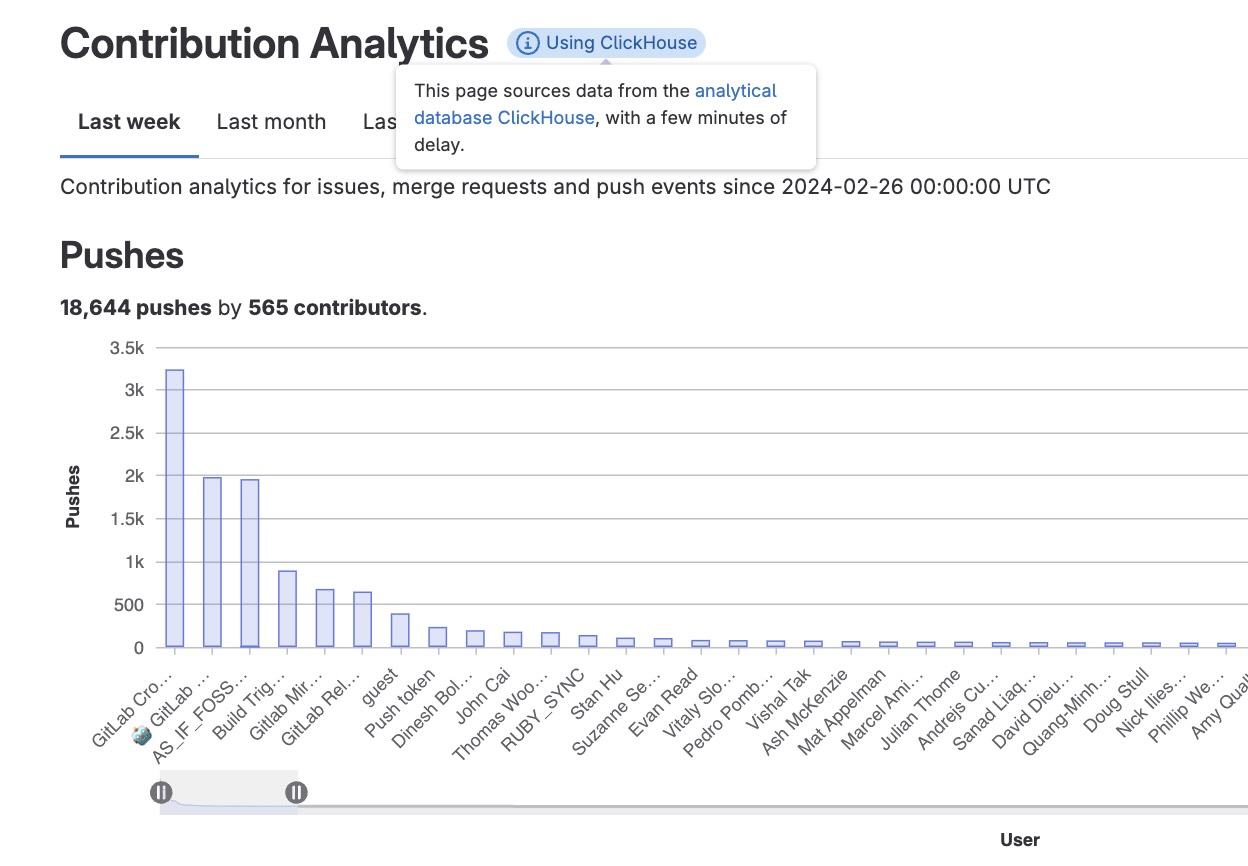

GitLab Pages and Advanced Search have been enabled for all GitLab Dedicated instances. These features are included in your GitLab Dedicated subscription.
Advanced Search enables faster, more efficient search across your entire GitLab Dedicated instance. All capabilities of Advanced Search can be used with GitLab Dedicated instances.
With GitLab Pages, you can publish static websites directly from a repository in GitLab Dedicated. Some capabilities of Pages are not yet available for GitLab Dedicated instances.
You can now offload CI runner traffic to Geo secondary sites. Locate runner fleets where they are more convenient and economical to operate and manage, while reducing cross-region traffic. Distribute the load across multiple secondary Geo sites. Reduce load on the primary site, reserving resources for serving developer traffic. After this setup, the developer experience is transparent and seamless. Developer workflows for the setup and configuration of jobs remain unchanged.
